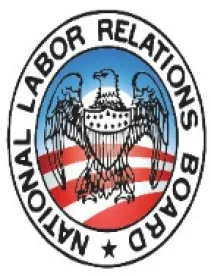On Tuesday, May 7, 2013, a three Judge panel of the United States Court of Appeals for the District of Columbia Circuit Court unanimously rejected the National Labor Relations Board (NLRB) rule requiring private sector employers to post notices informing employees of their rights under the National Labor Relations Board Act (NLRA) to organize and join unions. The case was an appeal by the National Association of Manufacturers and other employer groups of District of Columbia District Court Judge Amy Jackson’s opinion that the Notice Posting Rule was a valid exercise of the NLRB’s authority. The Court of Appeals decision held that all three of the NLRB’s methods of enforcing the rule were invalid.
The Court of Appeals ruled that requiring employers to post the notice violates an employer’s right to free speech, which is guaranteed in the NLRA. The Court pointed out that an employer is free to communicate with its employees as long as the communication does not contain prohibited threats or promises, and that an employer is also free to refrain from communicating. The Board’s methods of enforcing the posting rule by treating a failure to post as an unfair labor practice, considering the failure to post as evidence of anti-union animus, and tolling the Act’s six month statute of limitations for filing unfair labor practice charges at that employer until the notice was posted, were all determined to be impermissible restrictions on an employer’s right to free speech under the NLRA.
Two of the three Judges also specifically held that promulgating the rule exceeded the NLRB’s lawful rulemaking authority. Judge Randolph, who wrote the actual opinion, did not reach this issue, opining that there was no reason to decide whether the rule was within the NLRB’s authority, since he agreed with his two colleagues that the rule was unenforceable.
At least for now, the NLRB Rule requiring employers to post these notices will not take effect. There is another appeal filed by the NLRB in the Fourth Circuit Court of Appeals of a ruling by a South Carolina District Court invalidating the NLRB rule requiring the posting of the notice. However, in the two conflicting District Court decisions and the DC Circuit Court of Appeals decision, not one judge of the five, including Obama appointee Jackson, of the DC District Court, has ruled that a failure to post the notice could be an independent unfair labor practice, or could toll the 6 month statute of limitations for filing charges.
What does this mean for Private Sector employers?
If the Fourth Circuit affirms the South Carolina District Court decision invalidating the rule and the NLRB decides to continue to try to require employers to post the notices, it would have to try to appeal both decisions to the U.S. Supreme Court for a reversal. Under those circumstances, the U.S. Supreme Court could refuse to take the case, since there is no split of opinion in the Circuit Court of Appeals. If the U.S. Supreme Court took the case, it would be tougher for the NLRB to reverse two decisions by different Courts of Appeals. On the other hand, if the NLRB wins reversal in the Fourth Circuit, it would gain support as one Appellate Court would have agreed with it. In that instance, it would be very likely for the matter to end up in the U.S. Supreme Court, in order to decide the issue.
We will continue to monitor this situation as the courts limit the NLRB’s efforts to engage in administrative initiatives to assist unions in organizing the unorganized employees. Feel free to contact either of us if you have any questions or wish to discuss this matter.





 />i
/>i
